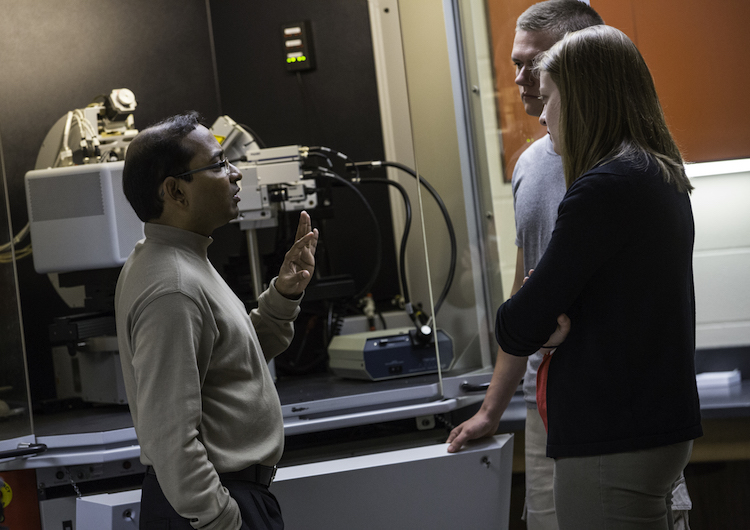Doctoral Degree in Industrial Engineering
Degree: Doctor of Engineering
Major: Industrial Engineering
Hours: 61

Industrial Engineering Overview
The Lamar University Doctor of Engineering Degree prepares you to lead advanced industry and research projects in Manufacturing, Automation, Operations Research, Reliability, Data Science, Supply Chain Management, Engineering Management, Safety, Human Factors, Ergonomics and Logistics. Our department has a focus on software and modeling to implement the ideas presented in our coursework. Our faculty and students typically research topics that are applied and industry-forced.
The Doctor of Engineering Degree at Lamar University offers competitive scholarships and assistantships for you as a highly qualified student with research interests compatible with those of the industrial engineering faculty.
Industrial Engineering Courses You May Take
Lean Manufacturing: You will learn how to planning, evaluation, deployment and integration of lean manufacturing theory and methods into manufacturing and service systems.
Supply Chain Management: You will learn logistics, purchasing, inventory systems, demand management and supply chain visibility.
Enterprise Business Intelligence: You will learn data mining, data integration, data cleaning, classification algorithms, clustering, regression and neural networks.
Automated System Engineering: You will learn control system, PLC, sensor and actuator, auto-id, flexible manufacturing system, assembly line, robotics and automatic inspection.
Production and Inventory Control: You will learn inventory management, forecasting, aggregate planning, materials requirements planning, scheduling and project management.
Computer Integrated Manufacturing: You will learn computer aided design and manufacturing including 3D modeling environment, robotics and computer numerical control machine tools.
Applied Programming: You will learn how to use Python and software libraries to solve data science and optimizing problems.
Database: You will learn SQL to store and analyze data.
ERP Overview: You will learn how to use SAP to do production planning and inventory control.
Career Paths for Industrial Engineering
As an industrial engineer, most of your work will center around the ultimate goal of helping production or manufacturing processes to run more efficiently. To be an effective industrial engineer, you need to be comfortable in a leadership role and possess the ability to work with a team. Around 70% of industrial engineers work at manufacturing companies, and many have specific areas of specialization, such as assembly, raw-product processing or administrative practices.
Primary Careers
Health and safety engineering, production management, analyst
- Logistics
- Management
- Quality control
- Occupational health and safety
- Statistics and data science optimization
- Revenue management
- Major manufacturing industries
- Consulting and engineering firms
- Banks and financial firms
- Wholesale traders
- Logistics corporations
- Healthcare manufacturers and facilities
- Construction firms
Meet the Faculty
 Brian Craig, Ph.D., PE, CPE
Brian Craig, Ph.D., PE, CPEDean of Engineering
 Maryam Hamidi, Ph.D.
Maryam Hamidi, Ph.D.Assistant Professor
 Berna Eren Tokgoz, Ph.D.
Berna Eren Tokgoz, Ph.D.Assistant Professor

 Victor Zaloom, Ph.D., PE
Victor Zaloom, Ph.D., PE